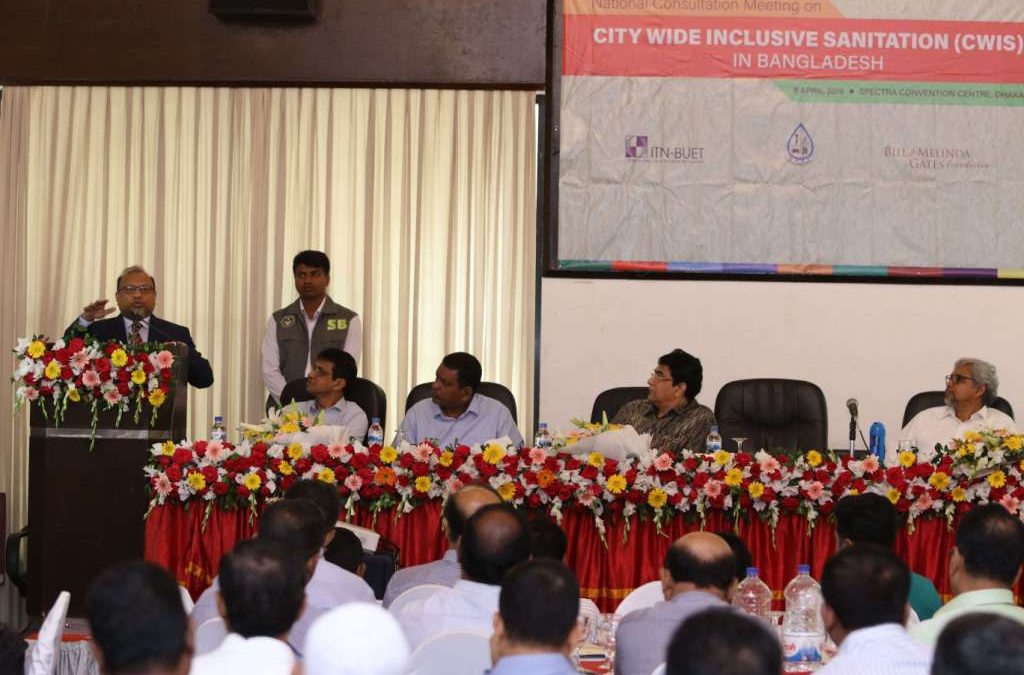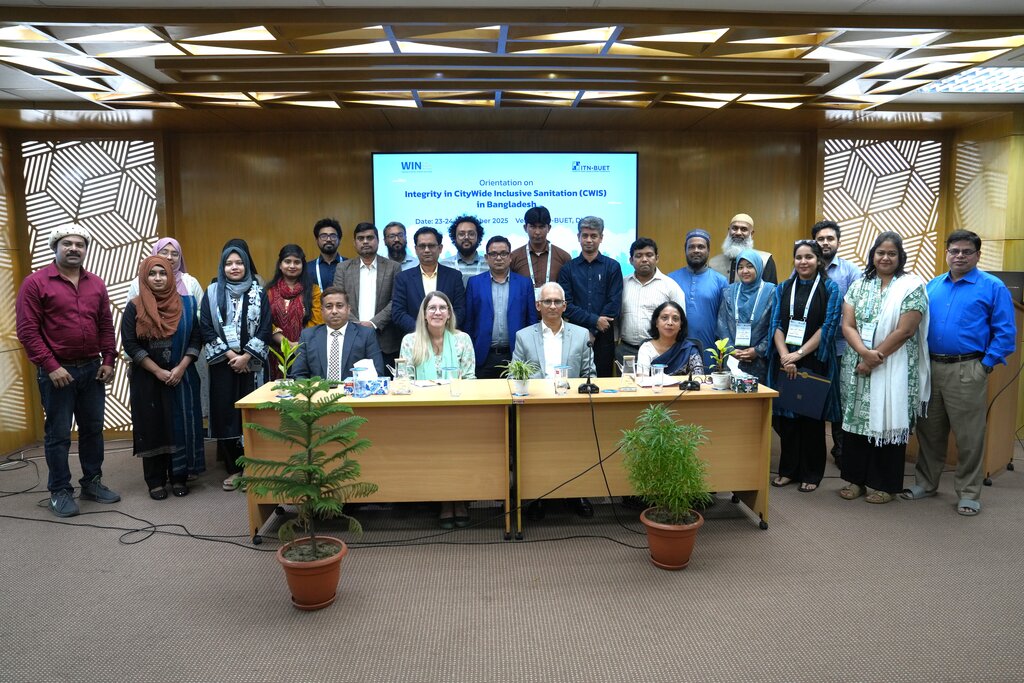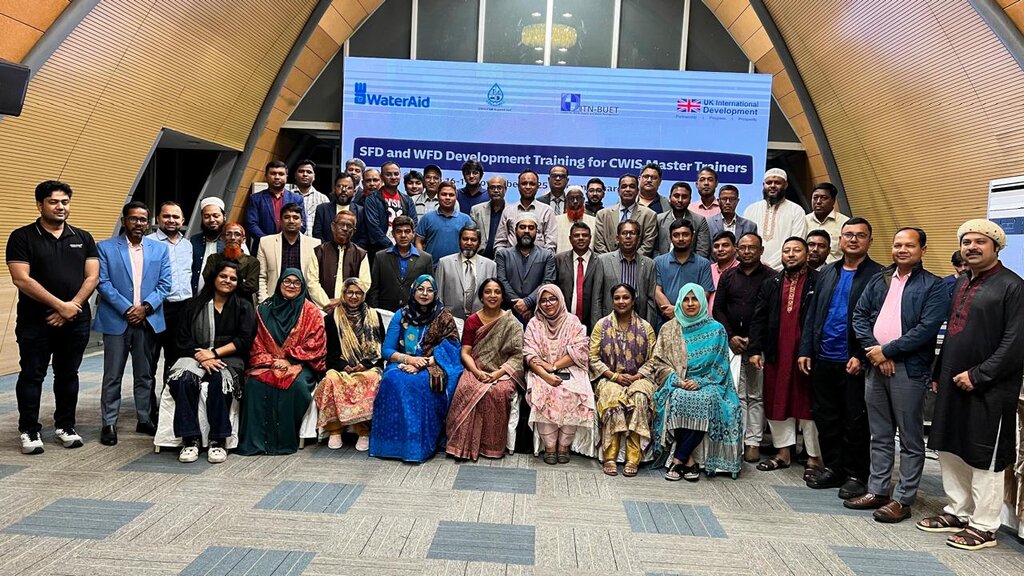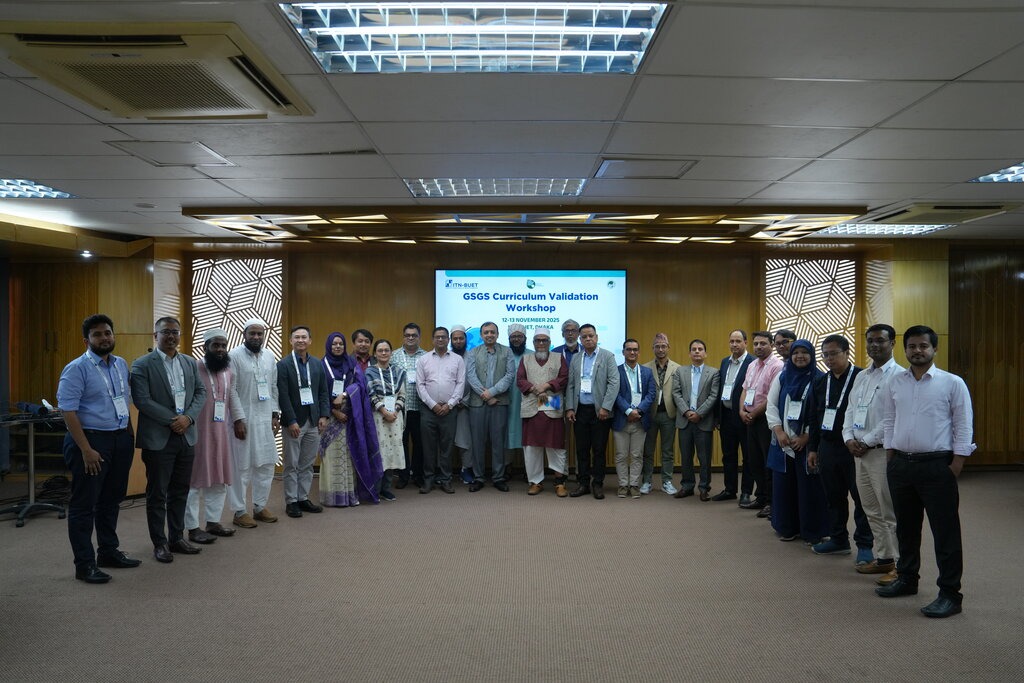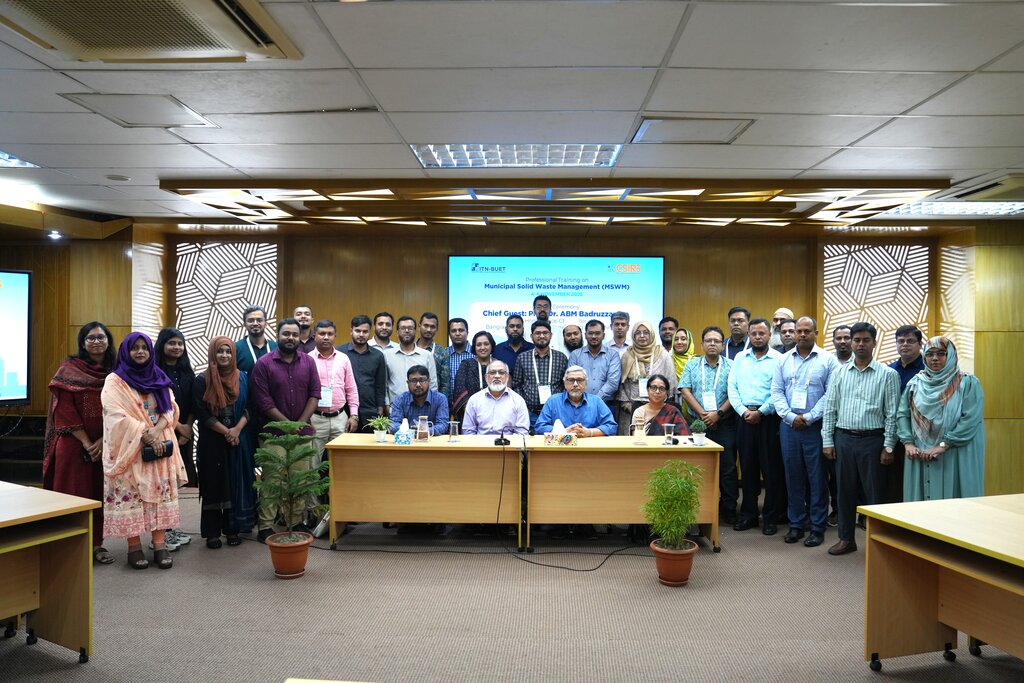
“We need to explore every possible option to ensure safe and improved sanitation, not only to achieve SDG 6.2, but for the safety of the nation”
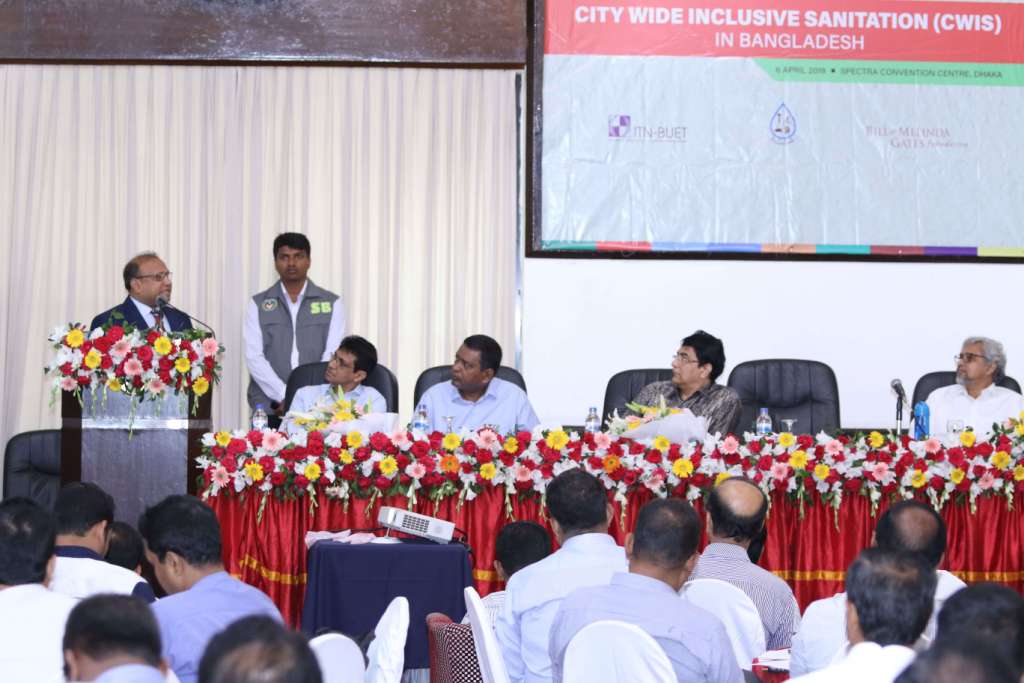
Competing with global pace, urbanization is rapidly expanding in Bangladesh, which is creating significant challenges for providing basic services such as water supply, sanitation, solid waste management to these large number of urban population. Among these large groups, people living in low-income communities, slums, women, elderly people and disabled people are more vulnerable to access to improved sanitation.
Md. Tazul Islam, MP, Hon’ble Minister, Ministry of Local Government, Rural Development and Cooperatives emphasized for comprehensive planning on sanitation including all as presenting as the Chief Guest in a National Consultation Meeting on City Wide Inclusive Sanitation (CWIS) in Bangladesh on 06 April, 2019, where he told “We need to explore every possible option to ensure safe and improved sanitation, not only to achieve SDG 6.2, but for the safety of the nation”. He added that Bangladesh has successfully achieved MDG sanitation target, and now emphasizing on achieving SDG, particularly sanitation target. He also mentioned that “waste management (solid and faecal) and water supply should be incorporated in academic programs of school and college. In that way, students would learn about these issues and help their families to be sensitized as well.”
“waste management (solid and faecal) and water supply should be incorporated in academic programs of school and college. In that way, students would learn about these issues and help their families to be sensitized as well.”
The event was held with the presence of Mr. S.M. Ghulam Farooque, Sr. Secretary, Local Government Division, Ministry of LGRD&C as Special Guest. In his speech, Mr. Farooque emphasized on inclusiveness of sanitation. He told that poor, disadvantaged people and marginalized groups should be focused for ensuring sanitation for all.
Currently, “fecal sludge from septic tanks and pit latrines are discharging into the open environment without treatment which is polluting the surrounding environment and water bodies” , said Dr. Md. Mujibur Rahman in the keynote presentation in the inaugural session of the event. Dr. Rahman also told that according to Local Government Act 2009, LGIs are responsible for ensuring sanitation.
Dr. Roshan Raj Shrestha, Director, Bill and Melinda Gates Foundation informed that “NSS/FSM was introduced to bridge the gaps of traditional sanitation system. But as these systems also have limitations, a new framework/approach has been introduced to incorporate both sewer and non-sewer sanitation”. He also said, “ITN-BUET in collaboration with DPHE is building capacity of LGIs and DPHE officials on CWIS through implementing a National level capacity building program under BMGF financial support.” He also emphasized the consideration of gender, equity and poor community during planning for sanitation.
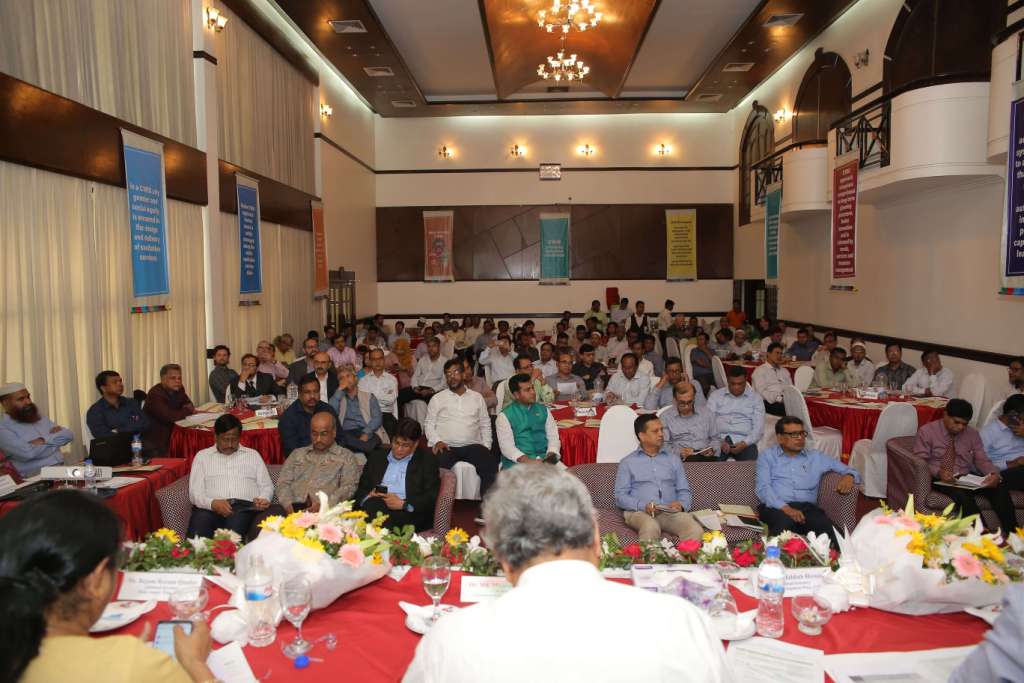
Chief Engineer, DPHE Md. Saifur Rahman mentioned that DPHE has started implementing water supply and sanitation projects in 89 Paurashavas. Application have been submitted to planning ministry for implementing similar project in 112 more Paurashavs. Also a Technical Assessment project has been funded by the BMGF to assess the current sanitation situation in Bangladesh.
After tea break, a discussion was held to discuss ways to scale up sustainable CWIS in Bangladesh. Dr. Md. Mujibur Rahman moderated the session while Ms. Roxana Quader, Additional Secretary, LGD and Mr. Md. Mahbub Hossain, Additional Secretary (Urban Development), LGD jointly chaired it. Among other topics, the importance of reviewing and updating policies and strategies on water supply sanitation in light with SDG and different issues on implementation of sanitation program in the urban areas and its sustainability were discussed.
Finally, Dr. Muhammad Ashraf Ali, summarized the discussion and expressed gratitude to all the guests and participants for their presence and valuable feedbacks and comments. He expressed that government is giving priority on safe sanitation including FSM, development partners, I/NGOs are coming forward to make CWIS city. He hoped this support from all levels will be continued until fulfilling the targets.


